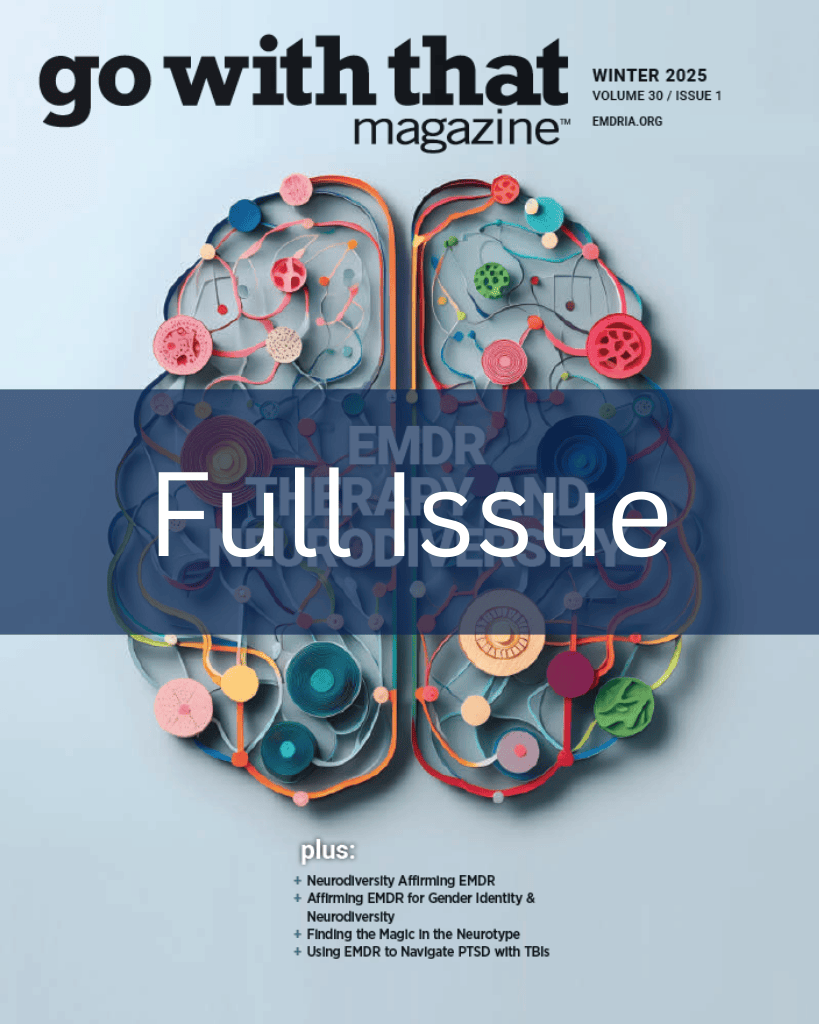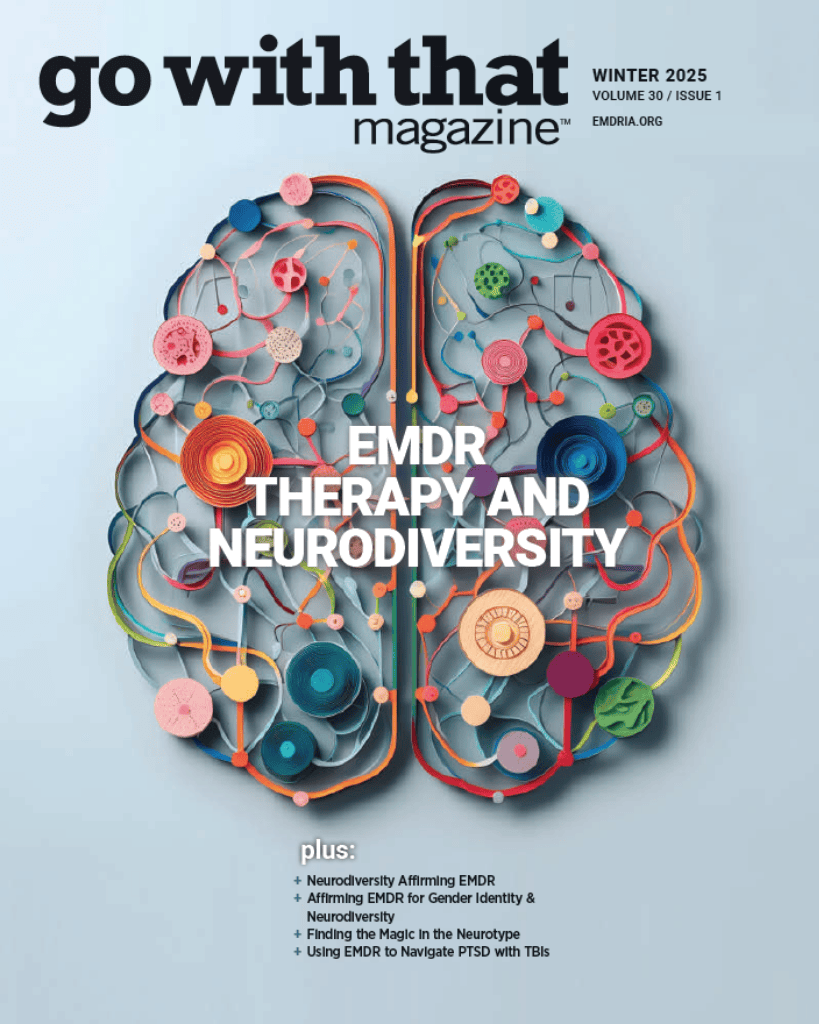EMDR Therapy and Neurodiversity
Go With That Magazine® Winter 2025
EMDR therapy has long been recognized for its effectiveness in treating trauma, anxiety, and PTSD. But what if you’re neurodivergent—whether you have autism, ADHD, traumatic brain injury, or another condition that impacts how your brain processes information? The good news is that EMDR can be tailored to meet the unique needs of neurodivergent individuals, helping them process emotional distress and past traumas in a way that aligns with their neurological makeup.
What makes EMDR particularly effective is its flexibility. Therapists can adapt the pace and type of bilateral stimulation to match their clients’ sensory preferences and processing styles. Whether it’s using slower movements for someone with sensory sensitivities or incorporating grounding techniques for clients with ADHD, EMDR offers a customizable approach that can bring about lasting change.
By engaging the brain’s natural ability to heal, EMDR empowers neurodivergent individuals to reclaim their sense of safety, calm, and control—providing a compassionate, effective pathway to emotional well-being.
Articles
This issue includes the following articles:
-
Neurodiversity Affirming EMDR: Pathological Demand Avoidance – Understanding and Supporting a Unique Nervous System Response by Christine MacInnis
-
Affirming EMDR at the Intersection of Gender Identity and Neurodiversity by Cathy Hanville
-
Finding the Magic in the Neurotype: Using EMDR with Neurodivergent Clients by Tiff Lanza
-
Using EMDR to Treat PTSD Associated with Traumatic Brain Injury: Navigating a Changed Brain and Sense of Self by J. Laurel Thornton
This content is restricted for members only. Please Log In or Join EMDRIA.




